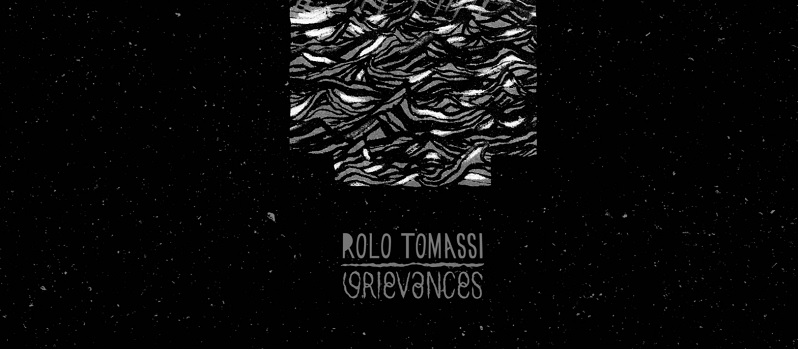Even with Dubya still firmly embedded in office, Zykos have managed to remind me that wonderful, wonderful things do in fact come from the Lone Star State. But those familiar with the legacy that Texas has lent to the indie-rock canon will be surprised to find that this Houston-based quintet doesn’t sound anything even remotely like Scratch Acid or The Butthole Surfers.
Far from the screams of David Yow and Gibby Haynes, Zykos’ music is a highly textured landscape of interweaving guitars and bass, sinister but inviting vocals, inventive drum patterns, and emotive piano. Their debut record — released on the Austin label Post-Parlo Records — is not only engaging and breathtaking. It’s one of the best, if not the best, full-length debuts from a band we may hear in 2003.
Like so many others, however, Zykos could come to be defined by their musical abilities as much as by their back-story. Long before forming the band back in the summer of 2000, the five members went to college together at the University of Texas and, even before that, spent their childhood together on the same street in Houston. While some may jazz up this bit of information as a sales gimmick, Zykos seems to use it as a point of entry: you can hear these strange invisible bonds and get a sense of all the knowing glances while wandering through the record’s 10 absorbing tracks. In short, you can tell just by listening that, before Zykos ever took their brand of orchestrated indie rock into a studio, they must have shared each other’s crib sheets in high school chemistry.
Comedy Horn begins with “Moviehome,” a bouncy pop-rock introduction with walls of dueling guitars, uncontrollable bass scales, and tastefully under-done shards of feedback, and manages to sustain and build upon this energy and vitality over the course of the entire record. Each spin of the disc reveals an increasing depth to the songs, and, as predictable as this may sound, each song throws something integral into the mix. Over the course of 10 songs, the band’s chiming guitar lines sound like a dreamy combination of Sonic Youth circa Dirty, Radiohead, and a sleepier version of REM. The vocalist/guitarist, Mike Booher, spits, snarls and forces out lyrics that most post-rock frontmen would kill through whispering, but sounds like he could head an angular act like Archers of Loaf as easily as he could add a stroke of tenderness to some string-heavy pop opus. The bass and drums avoid all of the typical rock disasters, injecting inspired, jazzy measures that keep the record from feeling dead in the water. Pianist/vocalist Catherine Davis may feel, at times, like a secondary player, but the accents and colors she lends to the overall tone of the record are absolutely indispensable.
Picking tracks that stand out is difficult, because the record seems to work best as a complete statement. “Understanding Fire” — Comedy Horn‘s longest track at 6:16 — is a number that becomes more and more seductive as it sways and expands, a series of guitar lines almost taken from Archer of Loaf’s White Trash Heroes and laid right over jazzy drum crashes and hi-hat excursions. The title track is nothing short of majestic, a piece with subtly multi-tracked vocals and a kind of playfulness between piano and guitars. The choruses on “Comedy Horn” — which seem sweeping and almost grandiose compared to the strange complexities of its verses and bridges — may be the finest moments on the CD.
“Kodiak,” which slowly creeps into existence with a single, droning keyboard note and a repeating kick drum heavy motif in the closing moments of “The Gambler,” could get Wilco to wonder if it really nailed “Radio Cure,” one of the gems from Yankee Hotel Foxtrot. (Before “The Gambler” fades slowly into “Kodiak,” the band also manages to put forth one of the record’s finest points: a driving 4/4 refrain of guitar and drums.) The album-closing “Typhoon of ’92” is a beautifully pained and jagged diamond in the rough of a song, an oddly balanced mix of heart-wrenching sadness and heart-breaking turmoil and discontent. Pointing out only a few of these songs, however, illustrates how the record is more than the summary of its high points.
Yes, yes, the record is not without its lulls and pauses, but they seem to serve more as necessary breaks to regroup than as secondary material. Case in point: “Listening Pills,” which falls smack in the middle of the record, and moves from an acoustic guitar and vocal shuffle into a strange, funky pop-rock number. Halfway though the crunchy guitar verses, everything falls by the wayside to allow Booher and Davis to sing a cappella. The moment is not earth-shattering, but it illustrates a vulnerability that seems to draw the listener even further into the equation.
With Hail to the Thief causing massive anticipation and massive seizures around the globe, some Radiohead fans may overlook Comedy Horn, a record that documents what everybody’s favorite British band could have sounded like had they continued down a path laid out on Pablo Honey. But it’s reductive to fob Zykos’ material off as Kid B. The quintet has created something incredibly engaging and breathtaking here, and they’ve managed to nail it on their very first stride out of the gate. Hey, get me the President. We’ve found someone to get the blood flowing back in the heart of Texas. – Delusions of Adequacy, June 23, 2003




